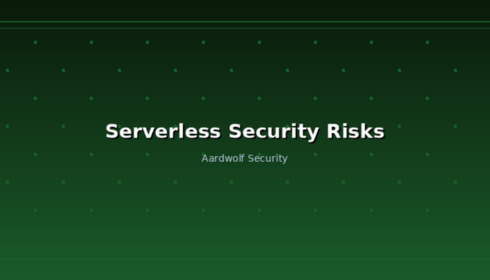
25 Questions Answered About Building a Career in Cybersecurity
1. What is cybersecurity?
Answer: Cybersecurity is the practice of protecting systems, networks, and programs from digital attacks, theft, and damage. It involves measures to prevent unauthorized access to sensitive information and ensure the security of data and digital infrastructures.
2. What skills are needed to start a career in cybersecurity?
Answer: Important skills for a career in cybersecurity include the following: problem-solving, networking protocols, knowledge of operating systems, such as Windows and Linux, security tools such as firewalls and antivirus, encryption, understanding ethical hacking, and knowledge in risk management.
3. What kind of cybersecurity career/roles are out there?
Answer: There are several career roles that are available in cybersecurity, such as:
Security Analyst
Penetration Tester/Ethical Hacker
Network Security Engineer
Security Architect
Incident Responder
Cryptographer
Chief Information Security Officer (CISO)
4. Do I require a degree in computer science or an equivalent qualification to enter a cybersecurity career?
Answer: It can be useful but not required; most professionals gain experience with related certifications and learn the needed information through practical means or self-teaching. Sometimes, though not always, the possession of a degree increases opportunities for job access.
5. What certifications should I acquire?
Answer: A few of the more valuable ones include:
Certified Information Systems Security Professional (CISSP)
CEH
CompTIA Security+
CISM
CCSP
Cisco Certified CyberOps Associate
6. What are the top entry-level cybersecurity careers?
Answer: Some of the entry-level roles include:
Cybersecurity Analyst
IT Security Administrator
Help Desk Security Technician
Network Security Administrator
Security Operations Center (SOC) Analyst
7. How do I get cybersecurity experience if I don’t have a job?
Answer: You can gain experience through:
Internships in IT or cybersecurity positions.
Personal projects, such as setting up your own network and practicing security measures.
Capture the Flag (CTF) competitions or online cybersecurity challenges.
Contributing to open-source security projects.
8. What are the main areas of cybersecurity?
Answer: Main areas include:
Network Security
Application Security
Information Security
Identity and Access Management (IAM)
Cloud Security
Incident Response and Forensics
Governance, Risk, and Compliance (GRC)
9. What tools should I learn for a career in cybersecurity?
Answer: Key tools include:
Wireshark (network analysis)
Kali Linux (penetration testing)
Metasploit (exploit development and testing)
Nmap (network scanning)
Burp Suite (web vulnerability scanning)
Splunk (log analysis and SIEM)
10. Which programming languages am I likely to find useful as a cyber security professional?
Answer: Useful programming languages are:
Python (for automations and scripting)
JavaScript (web security)
C/C++ (low-level system security)
Bash/Shell scripting (for performing system administration tasks)
SQL (for database security and injection prevention)
11. How do I maintain awareness about the latest in cyber security?
Answer: Stay updated by:
Following cybersecurity blogs and news websites (e.g., Krebs on Security, The Hacker News).
Participating in cybersecurity forums and communities.
Attending cybersecurity conferences and webinars.
Engaging with professional organizations like ISACA, (ISC)², and SANS.
12. What is ethical hacking?
Answer: Ethical hacking involves testing the security of systems by simulating cyberattacks to identify vulnerabilities. Ethical hackers, or penetration testers, are authorized to hack into systems with the goal of improving security.
13. What are the biggest challenges in cybersecurity?
Answer: Major challenges include:
Evolving cyber threats and attack vectors.
Data breaches and privacy concerns.
Securing cloud environments and remote work infrastructure.
Lack of skilled professionals in the industry.
14. How does cybersecurity relate to data privacy?
Answer: Cybersecurity means secure digital information, while data privacy is responsible collection of person’s data, how that gets used, and stored appropriately. Cyber security is important for real-time privacy and also the basis of compliance under GDPR.
15. What is a Security Operations Center (SOC)?
Answer: A Security Operations Center (SOC) is a facility or team responsible for monitoring, detecting, and responding to cybersecurity incidents. SOC analysts use tools to detect threats, investigate incidents, and ensure the security of an organization’s network.
16. What is risk management in cybersecurity?
Answer: Risk management in cybersecurity is the process of identifying, assessing, and mitigating risks on an organization’s digital assets. This process aids and prioritizes the security measures by assessing the likelihood and impact of potential threats.
17. How do I respond to security incidents?
Answer: Responding to security incidents involves:
Identifying and ascertaining the threats.
Containing and mitigating impact.
Analyzing the root cause of an incident.
Recovery and restoration of systems.
Reporting and documentation of such an incident for future improvements.
18. What are the job prospects in cybersecurity?
Answer: Cybersecurity is one of the fastest-growing fields, and the demand for skilled professionals is high. Increasing frequency and sophistication of cyberattacks create a constant need for cybersecurity experts across all industries.
19. Which are the industries providing opportunities for cybersecurity jobs?
Answer: Industries with a strong demand for cybersecurity include:
Financial services
Government and defense
Healthcare
Technology companies
E-commerce
Energy and utilities
20. Can I work remotely in cybersecurity?
Answer: Many cybersecurity jobs provide opportunities for remote work, especially security analyst, penetration tester, and incident responder jobs. Remote work is becoming a common trend within the industry since there is an increased demand for cybersecurity professionals.
21. What is a penetration test?
Answer: A penetration test is a simulated cyberattack against a system that identifies vulnerabilities before malicious hackers exploit them. The test includes scanning networks, applications, and security measures to boost overall security.
22. What is a cybersecurity audit?
Answer: A cybersecurity audit is a review of the cybersecurity practices, policies, and infrastructure of an organization. The audit will provide an overview of vulnerabilities, compliance problems, and room for improvement.
23. What is the role of encryption in cybersecurity?
Answer: Encryption transforms secret data into illegible text readable only by having a decryption key for the purpose. It guarantees integrity and confidentiality in that it eliminates unauthorized access.
24. What are the methods of advancing one’s career in cybersecurity?
Answer: To progress in your cybersecurity career, get advanced certifications, for example, CISSP; specialize in incident response or cloud security; get hands-on experience; and attend conferences and communities to build professional networks.
25. What are the prospects for salary advancement in a cybersecurity career?
Answer: Salaries in cybersecurity vary based on the role and experience. Average entry-level positions start at $50,000-$70,000 per year, while experienced professionals can earn between $90,000 and $150,000 annually. Senior roles, like CISO, can command salaries above $200,000.
Cybersecurity is a challenging and dynamic career path with growing demand. You can establish yourself as a valuable cybersecurity professional in today’s technology-driven world by acquiring the right skills, certifications, and experience.



